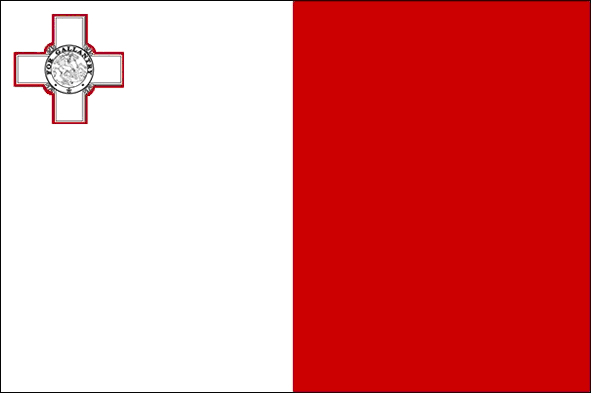
Despite its small size, Malta is a major tourist destination for ex-pats from the UK, the USA, Canada, Brazil, and other European countries.
This European tourist destination boasts of excellent climate conditions, numerous recreational areas, magnificent architectural & historical monuments, and affordable cost of living. It’s no wonder why over 1.3 million tourists visit the country every year.
If you plan on traveling to Malta, we have a comprehensive guide that would help you make your journey a whole lot easier. This guide covers everything you need to know before traveling to Malta from visa requirements for third-country nationals to the cost of immigration.
Who needs a Maltase visa?
EU nationals can easily relocate to Malta without any travel document. You can even move to Malta for work without any employment license or work permit.
While some third-country nationals have to overcome a handful of bureaucratic obstacles before they can be allowed to live or work in Malta. Most Non-EU/EEA nationals must possess a travel visa before they can relocate to the country.
Apart from citizens from EU member states, the table below contains a list of countries that can also visit and stay in Malta for up to 90 days within six months without possessing any travel document.
| Andorra | Dominica | Marshall Islands | Saint Lucia |
| Antigua and Barbuda | El Salvador | Mauritius | Saint Vincent and the Grenadines |
| Argentina | Grenada | Mexico | Samoa |
| Australia | Guatemala | Micronesia | San Marino |
| Bahamas | Holy See (Vatican State City) | Monaco | Seychelles |
| Barbados | Honduras | New Zealand | Singapore |
| Brazil | Hong Kong | Nicaragua | Solomon Islands |
| Brunei | Israel | Palau | South Korea |
| Canada | Japan | Panama | Timor-Leste |
| Chile | Kiribati | Paraguay | Tonga |
| Colombia | Macao | Peru | Trinidad and Tobago |
| Costa Rica | Malaysia | Saint Kitts and Nevis | Tuvalu |
| United Arab Emirates | USA | Uruguay | Vanuatu |
| Venezuela | |||
Citizens of Albania, Georgia, Moldova, Montenegro, North Macedonia, Bosnia and Herzegovina, Serbia, and Ukraine that possess biometric passports qualify for visa exemption.
Types of Visa
Depending on the purpose of your travel, you will need a specific visa that suits your needs. Whether you plan on traveling to Malta for work, study, leisure, or permanent resident, you must possess any of the following travel documents before you can travel to Malta.
Schengen Visas
The Schengen visa is a special travel document that allows the beneficiary to transit or remains to stay in the country for up to 90 days. The validity of this document depends on the length of travel but can be valid for up to five years.
You can apply for a Schengen visa at the diplomatic mission of the country which is the main destination of the visit. If you plan to visit several Schengen Member States, you must submit your application at the diplomatic mission/embassy of the country of first entry.
Thus, all ex-pats that want to tour Europe with Malta as the main destination or country of first entry into the Schengen area, must first lodge their applications at any Maltase diplomatic missions or embassy.
Short-Stay Visas (C)
These are a travel document that allows the beneficiary to stay in Malta for a limited time and perform restricted duties. There are three types of short-stay visas available in the country: single entry, double entry, and multiple entry visas.
Single entry visas – This is a document that allows the beneficiary to a single uninterrupted stay during the 90 days validity period as stipulated in the document.
Double-entry visas – This is another travel document that entitles the beneficiary to two visits within 6 months. The duration of both visits will not exceed 90 days.
Multiple entry visas – This visa entitles the beneficiary to multiple entries within 6 months. However, the duration of both visits will not exceed 90 days.
The difference between double and multiple-entry visas is that double-entry visas allow you to enter the country not more than twice within a half-year. While multiple entry visas allow you to enter and leave the country as much as you want. Multiple entry visas are particularly helpful if you have a business in Malta.
National Long-stay visas (D)
The long-stay visa is an immigration document for foreigners that plan to live, study, and work in Malta. If you plan to stay in Malta for more than 3-months, then you should apply for a long-stay visa.
Long-stay visa applications are not subject to representation arrangements. All applicants should contact the Central Visa Unit for information on which Maltase diplomatic missions would accept their visa applications.
Expats who need a visa should contact the nearest embassy to check the visa requirements for their country.
Required documents
The documents you need to complete your application include your passport with up to 3 months validity, 2 passport-size photographs (white background), health insurance, proof of accommodation, and proof of sufficient means of subsistence.
When applying for a Maltese visa, you must complete and submit your visa application form, your payment receipts, and the following documents.
